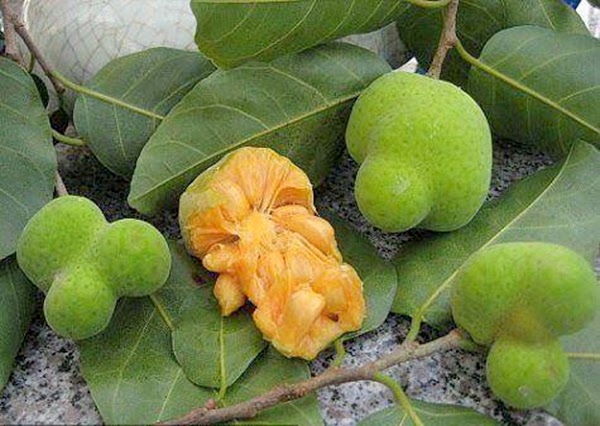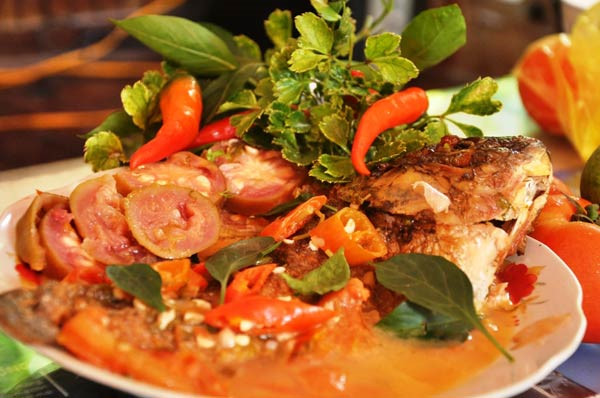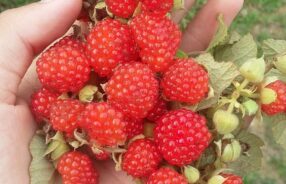Artocarpus tonkinensis – The Tonkin breadfruit
Artocarpus tonkinensis is a species of plant in the family Moraceae (the mulberry trees). It is endemic to northern Vietnam, but can be found in nearby areas. Artocarpus tonkinensis is known as chay in Vietnamese.

- Family: Moraceae
- Genus: Artocarpus
- Species: Artocarpus tonkinensis
- English name (suggested): chay, Tonkin breadfruit, Vietnamese breadfruit
- Vietnamese name: chay, chay Bắc Bộ
The chay tree is a large tree, about 15 m tall. Its trunk has gray bark. Its green leaves have a smooth upper surface and a pubescent underside surface. Its leaves have an oval shape and a pointed tip, about 10 cm long, 5 cm wide. The plant flowers in late spring around March and April. Its fruits should be ripe by the end of summer.

confusion
Artocarpus tonkinensis is often mistaken for Artocarpus lacucha (monkey fruit). The former has fairly round fruits, while those of the latter has an irregular shape. Artocarpus tonkinensis has pink flesh but Artocarpus lacucha has yellow one.
(To differentiate the two species, in Vietnamese, A. tonkinensis is called chay Bắc Bộ, and A. lucucha is called chay chiêm or chay lá to)

Medicinal uses
A. tonkinensis is a conventional Vietnamese herbal medicine. Extracts of various parts of the Artocarpus tree are used in folk medicine in order to treat backache and rheumatic disorders. Its leaf decoction is used as a traditional remedy by the Hmong ethnic group to treat arthritis and backache.
Culinary uses
Artocarpus tonkinensis is grown for its bark to be used an ingredients of paan (Vietnamese: trầu). Vietnamese trầu includes betel leaves, areca nut, chay bark, and slaked lime paste – Ca(OH)2. Dried chay bark has acrid taste. Its roots have has the same use.

The green Tonkin breadfruit is sour, and when ripe, it has a sweetish sour taste. It is sometimes used to cook sour soup. The seeds can also be roasted as food.












